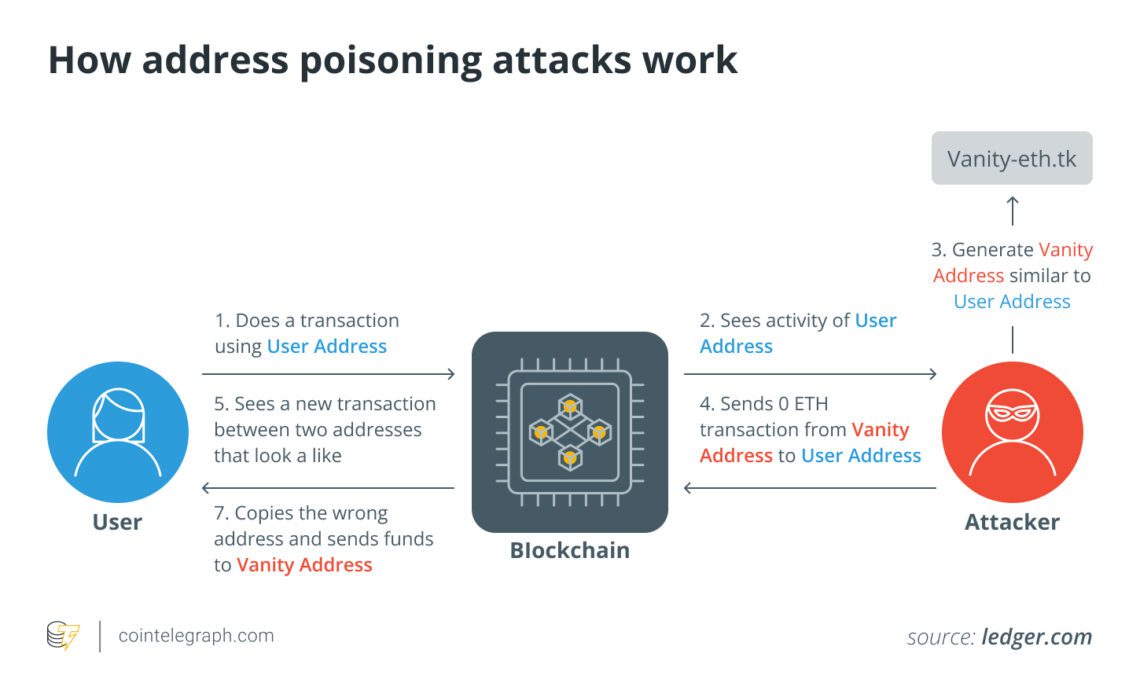Address poisoning attacks are malicious tactics used by attackers who can reroute traffic, interrupt services, or obtain unauthorized access to sensitive data by inserting bogus data or changing routing tables. The integrity of data and network security are seriously threatened by these assaults, which take advantage of flaws in network protocols.
This article will explain what address poisoning attacks are, their types and consequences, and how to protect oneself against such attacks.
Address poisoning attacks in crypto, explained
In the world of cryptocurrencies, hostile actions where attackers influence or deceive consumers by tampering with cryptocurrency addresses are referred to as address poisoning attacks.
On a blockchain network, these addresses, which are made up of distinct alphanumeric strings, serve as the source or destination of transactions. These attacks use a variety of methods to undermine the integrity and security of cryptographic wallets and transactions.
Address poisoning attacks in the crypto space are mostly used to either illegally acquire digital assets or impair the smooth operation of blockchain networks. These attacks may encompass:
Theft
Attackers may trick users into transmitting their funds to malicious addresses using strategies such as phishing, transaction interception or address manipulation.
Disruption
Address poisoning can be used to disrupt the normal operations of blockchain networks by introducing congestion, delays or interruptions in transactions and smart contracts, reducing the effectiveness of the network.
Deception
Attackers frequently attempt to mislead cryptocurrency users by posing as well-known figures. This undermines community trust in the network and might result in erroneous transactions or confusion among users.
To protect digital assets and the general integrity of blockchain technology, address poisoning attacks highlight the significance of strict security procedures and constant attention within the cryptocurrency ecosystem.
Related: How to mitigate the security risks associated with crypto payments
Types of address poisoning attacks
Address poisoning attacks in crypto include phishing, transaction interception, address reuse exploitation, Sybil attacks, fake QR codes, address spoofing and smart contract vulnerabilities, each posing unique risks to users’ assets and network integrity.
Phishing attacks
In the cryptocurrency realm, phishing attacks are a prevalent type of address poisoning, which involves…
Click Here to Read the Full Original Article at Cointelegraph.com News…
























